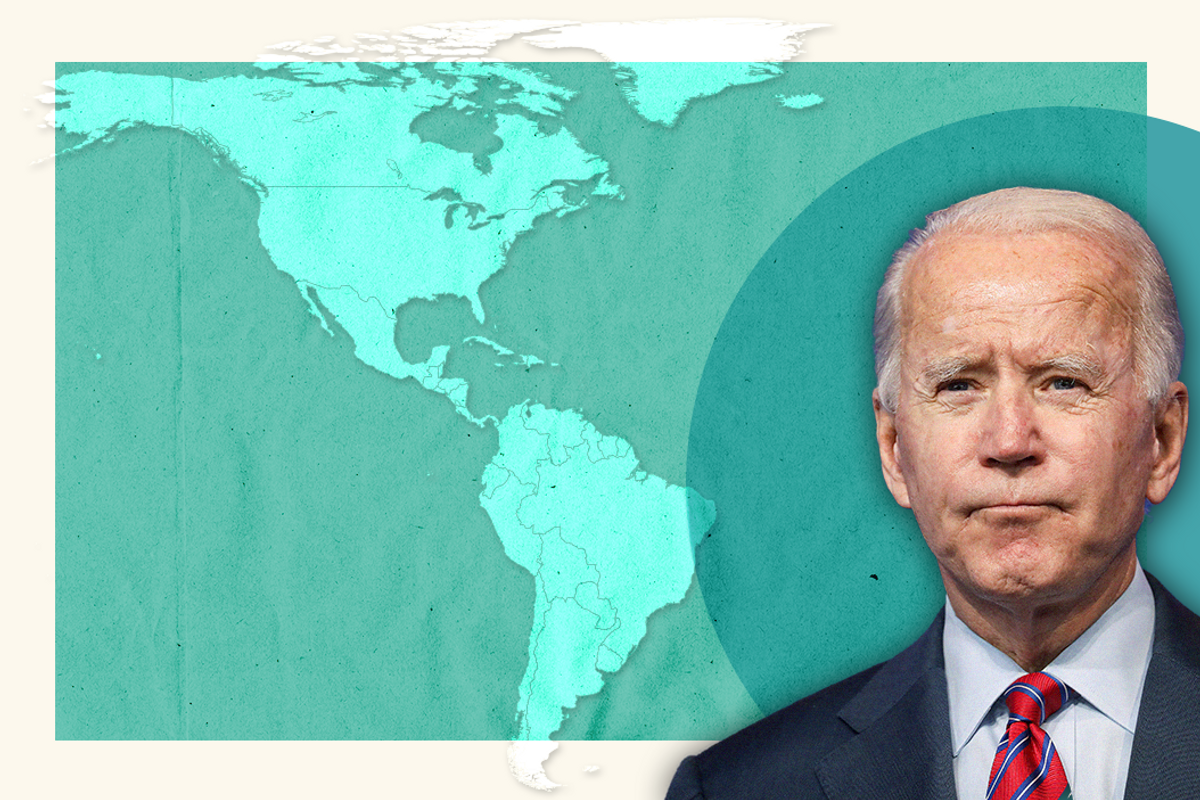On Wednesday, US President Joe Biden travels to Los Angeles to host the sixth Summit of the Americas, a gathering of leaders from, well, the Americas. But so far the event has gotten more chatter about who isn’t showing up, the light agenda, and doubts over whether it’ll accomplish anything after decades of US neglect and mutual mistrust.
Still, the US is pushing for a long-overdue reset with its continental neighbors, especially as China becomes a bigger player in the region. But the others in attendance wonder if the region’s most powerful country and the largest economy is really, as Biden loves to say, “back.”
The problem is finding common ground. Most of the countries in the Americas don’t want what the US is offering, and the US is not willing to give them what they crave. To be sure, 35 nations home to over a billion people across two continents are no monolith, but at least most care about two things: trade and migration.
"There's a pretty serious disconnect in terms of priorities," says Eurasia Group analyst Risa Grais-Targow.
Biden is pitching things like more US private-sector investment, stronger institutions, clean energy jobs, and bolstering supply chains. Washington also aims to support "sustainable" trade but only within existing trade agreements.
What Latin America was hoping for? The lifting of trade barriers so the Americas can sell more stuff to America.
But such a vague partnership will do little to counter the elephant in the room: China. For years, Beijing has been doling out cash to gain influence as well as access to key commodities, signing up some 20 Latin American nations to its signature Belt and Road Initiative and surpassing the US as the top trading partner of South America.
However, unlike in Asia, where many of its neighbors fear China's rise as a challenge to their sovereignty, Latin American countries welcome Chinese investment in their economies and appreciate that Beijing doesn't lecture them about corruption and human rights like the US often does.
The other big priority for Biden is migration, where some of the no-shows do matter. Mexico's President Andrés Manuel López Obrador passed (he sent his foreign minister instead), as did the presidents of Central America's Northern Triangle countries: Honduras, Guatemala, and El Salvador. If you want to stop migrants from flooding the US southern border, those are four people you definitely want in the room.
Meanwhile, several hours south of the summit by car, thousands of migrants — mostly from Venezuela, Cuba, and Nicaragua, whose autocratic leaders were not invited to the LA summit — are now marching through Mexico toward the US border, an image Republicans will play over and over in ads ahead of the November midterms.
Biden’s solution? Reportedly ship off a few thousand asylum-seekers to Canada and Spain. That’s a drop in the bucket compared to the coming surge, not to mention that it fails to address the region’s biggest-ever migrant crisis, which los gringos continue to overlook.
That’s migrants from Venezuela, where crippling US sanctions have worsened the country’s economic implosion in recent years, forcing millions to flee to countries like Colombia or Peru. Calls for the US to take in more Venezuelans or ease sanctions have fallen on deaf ears in Washington.
"Venezuelan outward migration has been a huge issue for the region. Obviously, the countries that are most affected want some sort of support," says Grais-Targow. "But the focus has been on migration toward the US."
America and the Americas drifting away from each other is nothing new. It's been happening since the 2000s, when the US first shifted attention to the War on Terror after 9/11, and more recently to Russia and especially China. Over the years, its neighbors have increasingly felt like an afterthought for successive US administrations.
Washington has a lot to gain from engaging more with Latin America, even if it's just to keep its countries at arm’s length from China or curb the flow of migrants to the Mexican border. But it'll take more than a summit and bromides to repair years of taking the Americas for granted.
This comes to you from the Signal newsletter team of GZERO Media. Subscribe for your free daily Signal today.



















